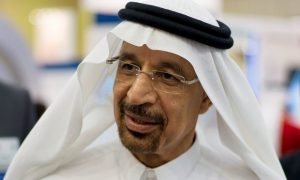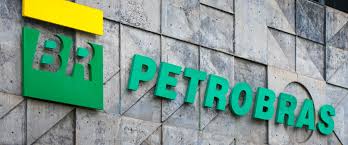
OpeOluwani Akintayo
24 September 2018, Sweetcrude, Lagos — Oil prices hit $80.94, a four-year high, on Monday after the 10th meeting of the Joint Ministerial Monitoring Committee, JMMC, between OPEC and non-OPEC energy ministers in Algiers on Sunday, ended with no formal recommendation for any additional supply boost.
Despite calls by U.S. President Donald Trump on OPEC to raise global supply, oil inventories continue to drop, pushing prices up more than 2 percent.
Brent hit its highest since November 2014 at $80.94 per barrel, up $2.14 or 2.7 percent, before dropping to around $80.65 by 0915 GMT. U.S. light crude was $1.50 higher at $72.28.
President Trump in a Twitter had on Thursday called on the Organisation of the Petroleum Exporting Countries, OPEC, to increase oil supply to reduce prices.
“We protect the countries of the Middle East, they would not be safe for very long without us, and yet they continue to push for higher and higher oil prices! We will remember. The OPEC monopoly must get prices down now!” Trump wrote on Twitter.
OPEC had however called the bluff after its Sunday meeting ended without any agreement to increase market share.
“I do not influence prices,” Saudi Energy Minister Khalid al-Falih told reporters after the meeting.
Crude oil prices reached $80 per barrel after OPEC and its partners, especially Russia, agreed in a Declaration of Cooperation, DoC late 2016, to cut crude supply into the market by 1.8 million barrels per day.
However, shale producers in the United States have countered OPEC’s effort at boosting prices by flooding the market with shale oil.
There has also been a decline in oil exports from OPEC member Iran due to fresh U.S. sanctions.
Although Falih said Saudi Arabia has capacity to increase oil output but the organisation is yet to agree on such move.
“My information is that the markets are adequately supplied. I don’t know of any refiner in the world who is looking for oil and is not able to get it,” Reuters reported, quoting Falih.
Although he believed a trade war between China and the United States as well as U.S. sanctions on Iran were creating new challenges for oil markets yet, Russian Energy Minister, Alexander Novak, said no immediate output increase was necessary.
Commodity traders Trafigura and Mercuria said on Monday that Brent could rise to $90 per barrel by Christmas and pass $100 in early 2019, as markets tighten once U.S. sanctions against Iran are fully implemented from November.
J.P. Morgan said U.S. sanctions on Iran could lead to a loss of 1.5 million bpd, while Mercuria warned that as much as 2 million bpd could be knocked out of the market.
Oman’s Oil Minister Mohammed bin Hamad Al-Rumhy and Kuwaiti counterpart Bakhit al-Rashidi told reporters after Sunday’s talks that producers had agreed they needed to focus on reaching 100 percent compliance with production cuts agreed in June.
That also means filling the gap left by Iran however, Al-Rumhy said the exact mechanism for doing so had not been discussed.
On Trump referring to OPEC as “monopoly”, OPEC’s Secretary-General, Mohammad Barkindo in his speech at the meeting where the 2018 version of the World Oil Outlook, WOO, was also launched, said the organization is “transparent” in its dealings, and as such “it should be evident that OPEC is neither a monopoly, nor a cartel, but a responsible global platform that consistently strives to maintain stability in the oil markets, in the interests of both producers and consumers. We have a vested, mutual interest in the healthy growth of the global economy”.
The OPEC chief said the OPEC-Non-OPEC cooperation will continue to enhance dialogue and build bridges across the industry.
“It will work hard to ensure a sustainable stability in the global oil market, enabling steady and lasting economic growth across consuming and producing countries”.
On Sunday, Iranian Oil Minister Bijan Zanganeh said Trump’s tweet “was the biggest insult to Washington’s allies in the Middle East”.
- Reuters



